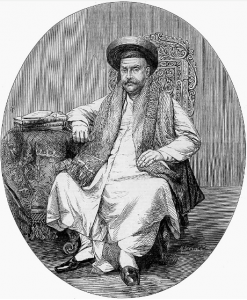ForumIAS announcing GS Foundation Program for UPSC CSE 2025-26 from 19 April. Click Here for more information.
ForumIAS Answer Writing Focus Group (AWFG) for Mains 2024 commencing from 24th June 2024. The Entrance Test for the program will be held on 28th April 2024 at 9 AM. To know more about the program visit: https://forumias.com/blog/awfg2024
Source-This post on Nana Jagannath Shankarseth is based on the article “Who was Nana Jagannath Shankarseth, the social reformer ‘architect of Mumbai‘” published in “The Indian Express” on 15th March 2024.
Why in the News?
The Maharashtra government recently requested the Ministry of Railways to rename Mumbai Central station after Nana Jagannath Shankarseth.
Who was Nana Jagannath Shankarseth?

About:
a. He was often called the “architect” of Mumbai (previously Bombay) and was recognized as a social reformer, educator, and philanthropist.
b. He provided invaluable contributions, both ideologically and financially, across numerous sectors, establishing a robust foundation for the city.
Birth– He was born (February 10, 1803) in a wealthy Brahmin family in Murbad,Thane district ,Maharashtra.
Inspired by– He was deeply influenced by the renowned merchant and philanthropist Sir Jamsetjee Jeejeebhoy.
Political journey– He was the first Indian to be appointed to the Legislative Council of Bombay.
What are Shankarseth’s main contributions?
Education:
1. Shankarseth was dedicated to expanding education in Bombay and donated his family’s land for educational purposes.
2. He established the Native School of Bombay, later known as the Bombay Native Institution and then the Board of Education. Eventually, it became the renowned Elphinstone College.
Museum, Temples:
1. Shankarseth was one of the wealthy donors who supported the development of the Dr. Bhau Daji Lad Museum in Byculla, which was designed by a renowned architect from London.
2. The Bhawani Shankar Temple near Nana Chowk was built by Shankarseth in honor of his late mother, Bhawanibai Murkute.
Railways:
1. The first train journey in India took place on April 16, 1853, between Boribunder and Thane, covering a 34-km route managed by the Great Indian Peninsular Railway Company.
2. Sir Jamsetjee Jeejeebhoy and Nana Shankarseth were part of the committee overseeing the project.
UPSC Syllabus- Personalities in news




